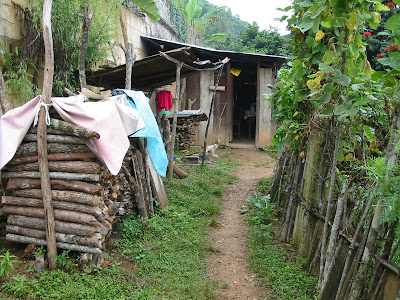I attended a conference on behalf of the National Pork Board's animal welfare committee in November of 2016 entitled "2016 Sustainable Agriculture Summit" in Atlanta Georgia.
Somewhere along the way the thought occurred to me, "Both Sustainability and Continuous Improvement have at their core definition the necessity of measurement".
If you are an astronaut and are planning a trip in space one of the first questions you will have is, "Is it sustainable?" "Can I live through it?" "Is there enough air on board?" All these questions require measurement to answer. How long (measurement) will the trip be? How much (measurement) air does a person require for that time? And what margin (measurement) of error should be considered adequate.
Continuous Improvement is similar in nature. How do I know if I am improving? I will need to measure what I am doing now. That measurement will become a benchmark from which all others are measured to ascertain improvement.
Measurement is so central to these two concepts that it is practically a synonym. If the word "sustainability" is replaced with "measurement" not much is lost in the meaning of the sentence. For example, one of the sessions at the Sustainable Agriculture Summit was titled "Implementing a Sustainable Framework in the Pork Supply Chain". This can also be written "Implementing a Measurable Framework in the Pork Supply Chain". Or another session was described as "Engaging farmers in on-farm conservation and broader
Continuous Improvement kind of tags along on this same definitional train. It becomes the first outcome of measurement. To improve you need two measurements to find improvement. A beginning point and then a point after taking an action aimed at improving.
These two measurement activities are extremely common and completely human. I check my weight. I check my blood pressure. I measure rate of gain in pigs. I measure days on feed. And on and on through life. All with the idea of improving or doing better next time. Measurement and continuous improvement are not a new discovery or idea.
One of the first rules of management that I learned so very long ago says, "If you can't measure it, you can't manage it." I am not concerned with the word "measurement" in this management truism. I am concerned with who the "you" is that is doing the management. If the "you" is "me", an independent producer and free citizen, then the management does not seem so scary. If the "you" becomes a government board or an industry auditor, let alone a global agency, with the power to impose standards on management and demand proof of compliance, I, the farmer, have lost the ability to manage my own farm. I have fundamentally lost freedom.
The concepts of measurement, continuous improvement, and management become drivers in the Climate Change dogmas. Specifically, the dogma that Climate Change is caused by man's activities and therefore man's activities need to be managed by..... who?. The typical answer right now is that the management must be done by the government and more specifically a global government.
I am hearing an enormous amount of discussion in farming about measuring new things. "Precision Farming", "Carbon Sequestration", "Cover Crops", "Methane Digesters", to name a few, that require the measurement of parameters that are new to the agricultural discussion. In general anything attached to the Carbon Footprint discussion takes measurement and recordkeeping. Keep in mind that every measurement creates multiple data points that need to be recorded, stored, and analyzed. So there is a whole different discussion to be had about data, its use, security, and ownership. Not that measuring is bad, as I have said. It is "who" is managing with that information that concerns me.
A couple other thoughts and I will stop.
All this data collection, reporting, analysis, and management takes time, money, and talent. So a natural advantage is created for the larger operator who can afford it. Read this as consolidation or vertical integration. I have discussed thoughts on this topic at On Mergers Foreign Ownership and Consolidation
The animal welfare discussion would be enormously different if there was a way to measure pain in an animal or human for that matter. Without measurement, management is guess work and writing meaningful regulations is impossible.
So I hope I have helped to point out that the timeless little action of "measuring" has found deep roots in the Climate Change discussion. How that proceeds has large implications for the future freedoms of agricultural producers.
You may learn more about my involvement with the National Pork Board at my blog entitled A Seat on the National Pork Board







